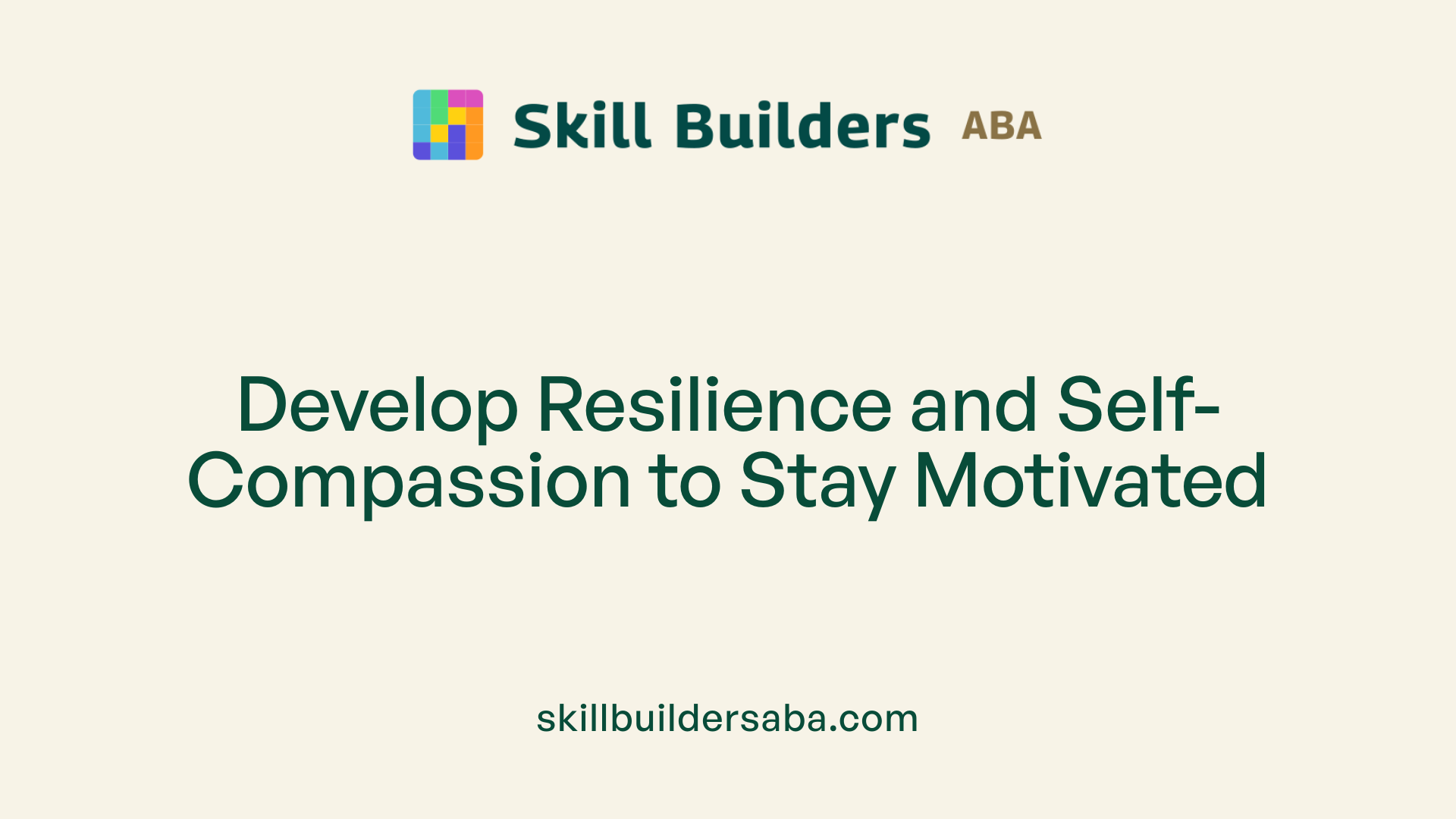How to build motivation for difficult tasks
Harnessing Strategies to Overcome Motivation Barriers for Challenging Tasks

Understanding Motivation and Its Role in Overcoming Difficulties
Motivation is the psychological force that compels action and is crucial in tackling challenging tasks. It is influenced by a blend of intrinsic factors, such as personal interests and values, and extrinsic factors like rewards and social influences. Developing sustainable motivation requires a comprehensive approach that includes clear goal setting, mental framing, environmental adjustments, and social support. Recognizing what temporarily undermines motivation—like fatigue, stress, or lack of confidence—allows individuals to implement targeted strategies to reignite their drive. This article explores effective methods and psychological insights to build and maintain motivation, especially when tasks seem insurmountable.
Setting Clear and Specific Goals to Enhance Motivation

How can I stay motivated when I have no energy?
Maintaining motivation during times of low energy can be challenging, but there are practical strategies to help. The first step is to address physical and mental factors such as hydration, proper sleep, and light physical activity like a short walk. These actions can boost your overall energy levels.
Focusing on small, achievable goals is also important. Breaking tasks into bite-sized steps makes them feel less overwhelming and provides a sense of accomplishment as each step is completed. Rewarding yourself for these small wins can further enhance motivation.
Practicing mindfulness and taking regular breaks help maintain mental focus. Reconnecting socially by sharing your goals or concerns with friends and family can renew enthusiasm.
Reframing tasks positively, for example by visualizing successful completion or acting as if you are motivated, can create a mental shift.
Lastly, being patient with yourself and prioritizing self-care—like resting when needed—are essential for sustaining motivation over the long term.
The Power of Intrinsic Motivation and Mental Reframing

How can I stay motivated even when things get difficult?
Maintaining motivation through challenging periods is a common struggle, but several strategies can help reinforce resilience. First, reframing setbacks as opportunities to learn and grow can significantly alter your mindset, turning failures into motivation for future success. Keeping a clear sense of your purpose, or your “why,” acts as a compass, guiding your efforts when the going gets tough.
Breaking big goals into smaller, manageable steps makes the path ahead less intimidating and allows you to celebrate small wins along the way, which boosts confidence. Focus on solutions instead of dwelling on problems; this proactive approach keeps you moving forward.
Building and relying on a support system, whether through friends, family, mentors, or colleagues, provides encouragement and diverse perspectives when motivation wanes. Additionally, investing time in self-improvement activities and establishing a consistent routine help develop mental resilience.
Practicing patience and cultivating a positive outlook, even amid adversity, are essential. By combining these approaches—maintaining flexibility, celebrating progress, and seeking support—you can sustain motivation over long periods or difficult circumstances.
How do I motivate myself to do hard things?
Motivating oneself to undertake challenging tasks requires thoughtful strategies. Here are some proven methods:
- Set Clear Goals: Clearly define what you want to accomplish and understand why it matters to you. Having a purpose increases intrinsic motivation.
- Break It Down: Large, overwhelming tasks become manageable when divided into smaller, specific actions. Each small step completed provides a motivational boost.
- Create a Routine: Automating parts of the process through daily routines can help you develop consistency and reduce reliance on motivation alone.
- Use Rewards: Establishing a reward system for completing difficult tasks helps create positive associations and encourages continued effort.
By adopting these strategies, you can build the mental framework necessary to push through discomfort and achieve your goals, fostering resilience and self-confidence along the way.
Leveraging Rewards and Gamification for Long-Term Motivation

What techniques help sustain motivation during difficult times?
Sustaining motivation during challenging periods involves employing strategies that boost resilience and maintain a positive outlook. One effective approach is to reinforce the purpose behind your efforts by connecting tasks to larger, meaningful goals, which enhances intrinsic motivation. Clear communication and transparency in projects foster a sense of trust and security, making it easier to persevere.
Supporting individuals through resources for skill development and mental health nurtures confidence and reduces stress. Flexibility in work or activity arrangements allows for adjusting plans to accommodate obstacles, which sustains motivation and autonomy.
Practical tactics like setting small, attainable subgoals prevent overwhelm and create a steady sense of progress. Tracking achievements visually or through apps helps you see your advancement, encouraging continued effort.
Practicing gratitude and engaging in positive visualization—imagining success and future rewards—can lift spirits during difficult times. Building supportive social networks, such as peer groups or mentors, provides encouragement and shared accountability.
By integrating these methods, individuals can develop a resilient mindset that fosters perseverance and sustained motivation during setbacks or stressful circumstances.
How do you get motivated to do a difficult task?
Getting started on a tough task often requires breaking through initial resistance. Applying the 10-minute rule—committing to work on the task for just ten minutes—can lessen dread and make commencement easier.
Pairing the activity with something enjoyable, like listening to favorite music or taking a walk in nature, can elevate mood and create positive associations.
Managing your to-do list wisely is also crucial. Prioritize important or challenging tasks early in the day when your energy is high, and eliminate or delay less critical activities to avoid feeling overwhelmed.
Cultivating self-compassion and positive self-talk helps build resilience, reducing negative thoughts that hinder motivation. Celebrating small wins along the way reinforces effort and fosters momentum.
Implementing rewards, such as small treats or breaks, can provide additional motivation and make difficult tasks feel more rewarding.
Overall, combining these techniques makes starting and completing challenging activities more feasible, transforming daunting tasks into manageable steps.
Building Resilience and Self-Compassion in Motivation

How to stay motivated even when things get difficult?
Maintaining motivation during challenging times requires developing resilience—your ability to bounce back from setbacks and keep moving forward. One effective approach is to reframe failures and obstacles as opportunities for growth rather than as insurmountable barriers. This mental shift helps sustain a positive outlook that remains grounded in realism.
Remembering your underlying purpose or “why” behind your goals reinforces your commitment and provides emotional strength when motivation wanes. Breaking larger goals into smaller, actionable steps makes progress more tangible and manageable, even amid difficulties.
Focusing on solutions rather than problems encourages proactive behavior. Adaptability—being willing to adjust plans as circumstances change—is also crucial, as it prevents feelings of defeat and promotes continued effort.
Building a reliable support network with trusted friends, colleagues, or mentors offers encouragement and fresh perspectives. They can motivate you to persevere through tough patches. Additionally, investing time in self-improvement activities, maintaining a consistent routine, and practicing patience build resilience over time.
All these strategies contribute to a robust mental framework, enabling you to stay motivated despite setbacks and adversity.
How do you get motivated to do a difficult task?
Starting a difficult task often requires intentional effort to overcome initial resistance. A practical method is to employ the 10-minute rule—commit to working on the task for just ten minutes. Often, beginning is the hardest part, but once started, momentum tends to carry you forward.
Pairing the task with enjoyable activities can significantly improve your mood and outlook. For instance, listening to your favorite music or taking a nature walk before or during work can make the process more pleasant.
Managing your to-do list also helps by prioritizing important and challenging tasks early in the day when your energy is high, and eliminating or delaying less important activities to reduce overload.
Self-compassion plays a vital role in staying motivated. Be kind to yourself, especially if progress is slow or setbacks occur. Positive self-talk and affirmations bolster resilience, making it easier to face difficulties.
Reward yourself incrementally after completing parts of the task. Rewards reinforce effort and build confidence, creating a positive feedback loop that sustains motivation.
Integrating these strategies can transform a daunting task into a more approachable and motivating endeavor, increasing your chances of success.
Creating a Supportive Environment and Routine for Sustained Motivation

How do I motivate myself to do hard things?
Motivating oneself to tackle difficult tasks can be challenging, but implementing practical strategies can make a significant difference. Setting clear goals that specify exactly what needs to be achieved helps provide direction and purpose. Breaking large tasks into smaller, manageable steps prevents feelings of overwhelm and creates a sense of progress.
Establishing a routine plays a vital role in automating actions related to hard tasks. When activities become habitual, they require less mental effort to initiate. Incorporating rewards, such as small treats or positive affirmations, further reinforces perseverance. Additionally, creating a consistent environment—like a dedicated workspace free of distractions—can boost focus and motivation.
| Strategy | Description | Practical Example | |----------------------|--------------------------------------------------------------|--------------------------------------------------------------| | Set Clear Goals | Define specific and achievable objectives |
Transforming Self-Perception and Building Identity around Goals
How do you get motivated to do a difficult task?
Getting motivated for tough tasks can seem daunting, but there are several practical strategies to overcome this hurdle. Starting small is often effective—use the 10-minute rule to begin a task; committing to just ten minutes can diminish the dread and help you get started. Pairing the task with something enjoyable, such as listening to your favorite music or taking a walk in nature, can lift your spirits and make the task less intimidating.
Managing your to-do list also plays a vital role. Prioritize tasks by importance, and eliminate non-essential activities that cause distractions or feelings of being overwhelmed. Breaking larger goals into manageable chunks prevents burnout and fosters a steady sense of progress.
It's equally important to practice self-compassion. Recognize that doing your best is enough, and avoid harsh self-criticism which can drain your motivation. Positive self-talk, affirmations, and visualizing successful completion can reinforce your confidence and resilience.
Reward yourself along the way. Celebrating small wins reinforces effort, keeps your spirits high, and builds momentum for the next step. These combined approaches create a resilient mindset and boost your drive to conquer difficult tasks.
What techniques help sustain motivation during difficult times?
Sustaining motivation through tough periods requires a blend of emotional and strategic approaches. First, reconnect with the purpose behind your goals. A clear understanding of why a task is important can fuel intrinsic motivation, making even arduous efforts seem worthwhile.
Maintaining transparency and open dialogue with peers or mentors fosters trust and provides emotional support, which is crucial when morale dips. Recognizing achievements—no matter how small—can significantly boost morale by providing visible proof of progress.
Supporting mental health and skill development through resources or professional help helps reduce stress and build confidence, thereby reinforcing motivation. Flexibility in work or study routines, like adjusting deadlines or methods, accommodates personal circumstances and sustains effort.
Additional strategies include setting small, achievable goals, and tracking progress to visually remind yourself of your advancement. Practicing gratitude, engaging in positive visualization, and building a supportive network of friends or colleagues further fortify resilience. When combined, these practices cultivate a positive environment where perseverance becomes more manageable during hard times.
How self-identity influences motivation and habit development
Self-identity plays a crucial role in motivation. When individuals see themselves as the type of person who can achieve certain goals—such as being a healthy eater or a diligent learner—they are more likely to align their behaviors with these identities. This alignment reinforces habits and makes motivation more sustainable.
Building this identity involves consistently engaging in behaviors that reflect the desired self-image. For example, practicing regular exercise can foster the identity of being an active person. Over time, these habits become part of one's self-concept, fueling ongoing motivation.
Moreover, changing how we talk to ourselves—our self-talk—is instrumental in shaping our identity. Replacing negative or doubtful thoughts with positive, empowering language can shift perceptions and enhance motivation. Instead of thinking,
Strategies for Building Sustainable Motivation in the Long Run
Building motivation for difficult tasks is a multifaceted process that involves clear goal setting, mental reframing, social support, and establishing effective routines. Recognizing that motivation fluctuates and preparing for setbacks through small wins and flexible strategies fosters resilience. Additionally, cultivating a positive self-identity, leveraging rewards, and maintaining an environment conducive to focus help sustain enthusiasm over time. Ultimately, developing systemic approaches—such as routines, social accountability, and psychological techniques—empowers individuals to persist through challenges, transforming daunting tasks into achievable milestones and paving the way for personal and professional success.
References
- How to Keep Working When You're Just Not Feeling It
- How to Motivate Yourself to Do Hard Things - Scott H Young
- How to Stay Motivated in Difficult Times | by Ricky Gothlin | Medium
- Motivation: The Scientific Guide on How to Get and Stay Motivated
- Motivation ADHD Resources at MSU Moorhead
- 4 Strategies for Persevering Through Difficult Tasks
- How to Motivate Yourself: 11 Tips for Self Improvement - Coursera
- How to Start Tasks & Stay Motivated for Ultimate Productivity
- ADHD and Motivation: 10 Productivity Hacks for Adults with ADHD
.svg)













